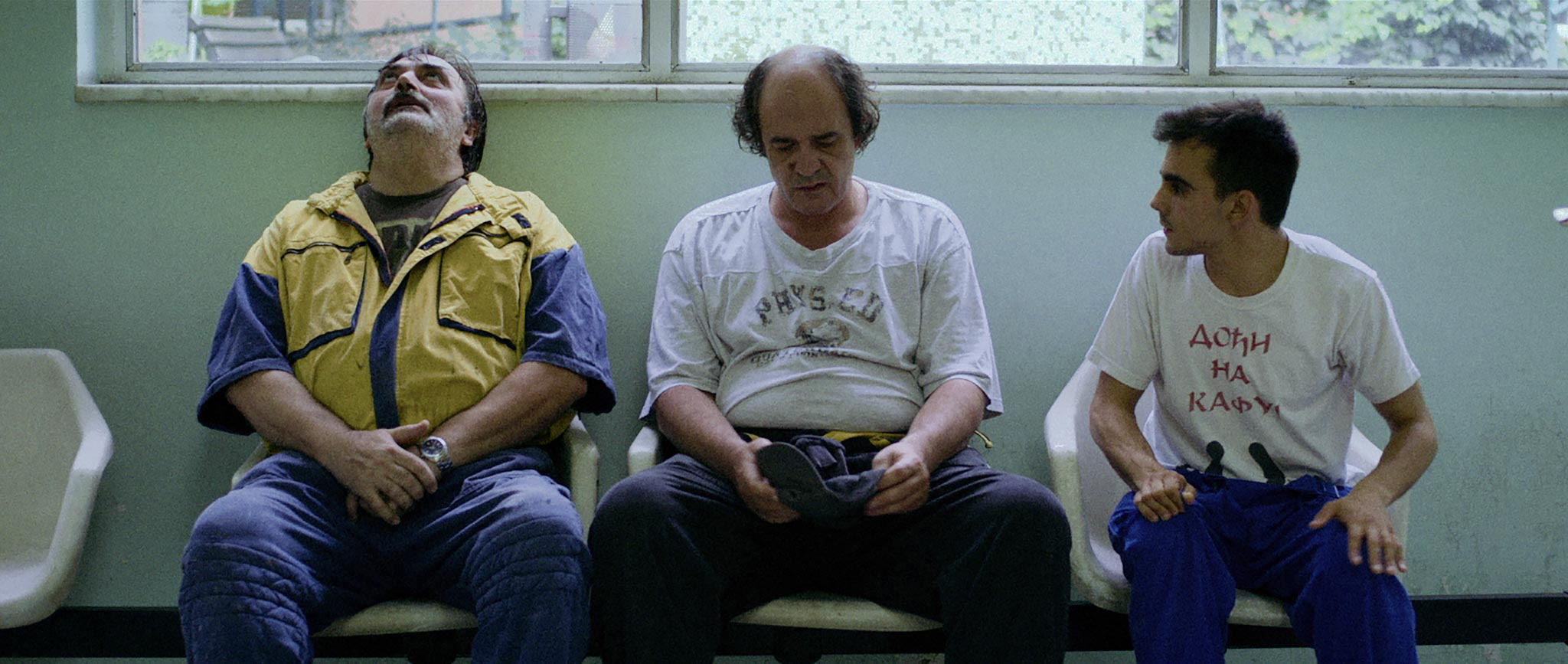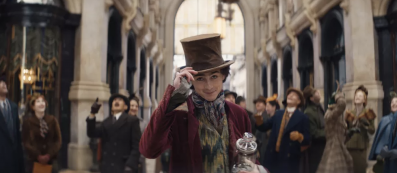
Working Class Heroes - review: Working class is the last socialist artefact in the latest film by Miloš Pušić
Working Class Heroes shows us the death of socialist values in South-East European society, but also around the world.
Working Class Heroes by Serbian director Miloš Pušić had its world premiere last night at the Berlinale in the Panorama program. The theme of the film is construction sights in post-socialist countries that have been stuck in transition for 30 years and the subordination of precarious workers, who, due to a combination of circumstances, ended up working there for the worst kind of bosses. The backdrops of this time and being are the amusement park and the pink facades, the soundtrack Veseljak by Ana Bekuta (turbo-folk music from South-East Europe), cheap Rubin brandy, a quarter of a loaf of bread and food eructations.
Although Pušić belongs to a generation of younger authors who can hardly remember Yugoslavian socialism, self-government and the idea of working for the collective good and not for the boss, the title of the film will deceive us and take us to those times, which speaks volumes about the distorted capitalism in the Balkans that suppressed the term worker. It is important to mention that in previous years, there are more and more films made in Serbia that come out from the comfortable storytelling coordinates of socialist nostalgia and past local wars, and are actively talking about the social issues of today. One of them is the debut film Celts, directed by Milica Tomović, (shown at the Berlinale 2021), Father (Berlinale 2020) by Srdan Golubović and Stitches (Berlinale 2019) by Miroslav Terzić.
Working Class Heroes is a story about a professor and a group of disenfranchised builders who have been left without money and basic rights that are still trying to fight their bosses with all the means and knowledge they have. Their bosses are building a huge "Potemkin village" with the intention of stealing money from the EU and other development funds. As the deadline for the development funds approaches, the stakes increase and what started as a simple construction job becomes a struggle on the verge of life and death.
Among the group of disenfranchised workers who can't reconcile with the precariat, there are those who in other times performed important social functions such as the Professor (Boris Isaković) and Mile (the late Mihajlo Pleskonjić) who got ruined by the situation in which he finds himself. Still, Mile swears out Bella Ciao while drinking Rubin brandy. Andrei Nikolaidis in his novel Departure writes that the golden age of this brandy was a time of nationalist madness, city demolition and mass executions.
During that time, the newly formed class of national capitalists called the priest for everything and anything, to consecrate and bless the work, creating a satisfactory picture for the general public. The professor, Mile and thousands of disenfranchised workers in the countries that emerged from the disintegration of Yugoslavia are the last socialist artefacts, as the name of Dalibor Matanić's series from last year indicated. They are the only thing left that could not be seized by war profiteering and privatization, and they are insignificant capital.
In certain scenes, while watching Professor, Mile, Mali and the rest of the team struggling on an illegal construction site, without basic protective equipment and means of work, in the background we hear the famous Yugoslavian hit band Smak from 1976, Ljudi nije fer (Hey people this isn't fair!), which in today's constellation relations can be interpreted as mockery, or the worst prediction, if we compare the attitude towards workers who worked for the common good then, and today's disasters in which they work for the boss in whose hands the capital remains.
Characters like Mile and Professor from the film certainly remember those times, maybe someone else from the group, but subsequent intelligence is the worst intelligence, so it is easier to be a lobotomized hound like Braco (Predrag Momcilovic), who claims that he is being harassed by the boss's secretary Lidija (Jasna Djurićić), the boss Miki Jegulja (Aleksandar Đurić), and the others.
After the extraordinary film Quo vadis, Aida? (2020) by Jasmila Žbanić it is almost impossible to observe Jasna Đuričić through the prism of negativity, although in Pušić's film the role of Lidija was written just for her. However, all the time we watch the film on her face, we look for lines of empathy towards disenfranchised workers and evicted tenants, and disgust of the construction mafia, the rules that govern that circle, her boss and the job she does to feed her family. The final revelation of this comes in the extraordinary finale where Lidija has to choose sides, pushing the character to its edge while also pushing the actress to another splendid performance.
In the film, Pušić presents the fact that the death of a worker on a construction site means nothing. However, those are the dozens of deaths that we read about every day in the media, where they are only used as information that we never find out about again, so we stopped reacting to them. Pušić also showcases other elements of the patriarchal Balkans stuck in transition. Besides the working class issues, the film shows the position of female workers that often entirely belong to their boss, or there are still young people in this region that have never set foot outside the borders of their own country like Mali (Stefan Beronja) and don't have a perception of anything better than they already have.
At certain moments of the film, poor acting is present, because the film mixes professional actors and actual workers who are in a way just reacting or replaying their everyday life (hopefully past everyday life) in front of the camera. This is best seen in a slow pace scene when protective equipment and overalls arrive that workers are not allowed to soil and the workers have no idea how to act naturally. Still, these shortcomings actually make the film even more charming and organic.
Overall, Working Class Heroes subtly tells us how nationalism is born and survive in our country. In a polarized society where the disenfranchised man has nothing left but identity, the collective behind which the blood is hidden religion and nation, it is necessary to deprive him of the little means of subsistence, dignity, and the ability to know some other perspectives and landscapes. It is a recipe for obedience. At least once.
Variation of review published at: BUKA















